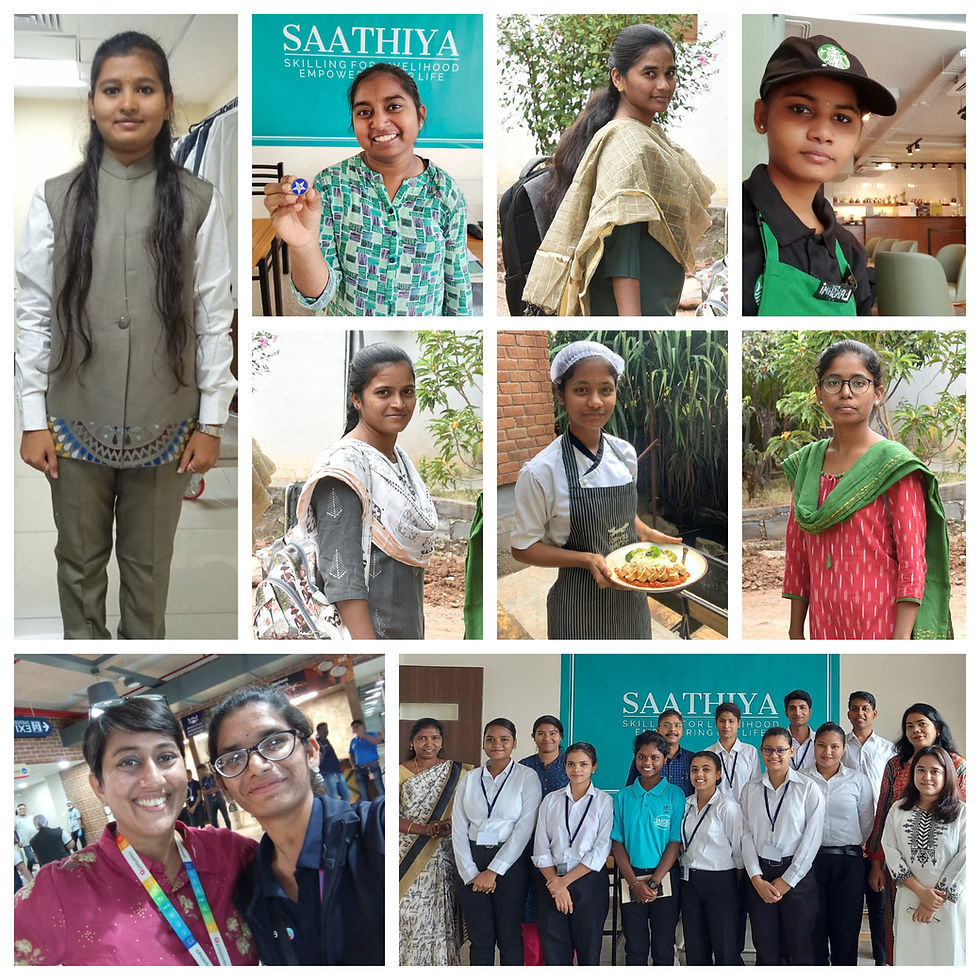The Stigma of Being a Girl: Confronting Gender Bias
- Sunil Kanth Rachamadugu

- Feb 2, 2024
- 4 min read
In India, with its rich mix of different traditions and cultures, there's a big problem that we don't talk about enough: gender bias. It's a barrier that many Indian girls face from the moment they are born. In this blog, we delve into the realities of gender bias in India, its impact on girls and society, and how Aarti for Girls is actively working to create a brighter, more equitable future.

Understanding Gender Bias
Gender bias in India isn't just about unequal treatment; it's a deep-rooted issue intertwined with cultural norms, social practices, and historical beliefs. From preference for male children to limiting a girl's aspirations, this bias shows up in many aspects of life. It's more than just numbers; it's about how a girl feels growing up in a society that often tells her she's less.
Historical Context
Tracing back through India's history, gender bias has been influenced by various socio-cultural and economic factors. Traditional beliefs and practices have often placed women in subordinate roles, impacting their status in society. Understanding this historical backdrop is crucial to grasp why gender bias is so deeply ingrained in Indian society.
How Does Gender Bias Affect Girls?
From education to career choices, Indian girls often find their paths laden with obstacles simply because of their gender. This bias can lead to:
Educational Gaps: Many girls are either not sent to school or are pulled out early to help at home or get married.
Health Inequalities: Girls' health and nutrition can sometimes be neglected compared to boys.
Limited Opportunities: As they grow, career and life choices for girls are often limited, with societal expectations pushing them towards certain roles.
Statistical Insights
Recent statistics indicate that only a fraction of girls in India receive complete education, and women's participation in the workforce remains disproportionately low. These figures not only highlight the prevailing inequalities but also underscore the urgency of addressing them.
The Ripple Effect: Society at a Loss
When girls are held back, it's not just an individual loss; it's a societal one. Communities miss out on the talents and skills of half their population. The nation's progress is stunted when its girls are not allowed to reach their full potential.
Broader Societal Impact
The repercussions of gender bias extend beyond individual lives, affecting the nation's economic growth and social development. Empowering girls and women is not only a matter of justice but also a critical component for a prosperous and equitable society.
Aarti for Girls: Bridging Gaps and Building Dreams
At Aarti for Girls, we are dedicated to turning these challenges into opportunities for empowerment. Our work in India focuses on:

Accessible Education: We ensure that more girls get the chance to go to school, stay in school, and dream big. Our educational initiatives are tailored to the Indian context, making learning relevant and exciting for girls.
Health and Nutrition: Recognizing the importance of health, we provide support and resources to ensure girls grow up healthy and strong.
Skill Development: Through vocational training, we open doors for girls to diverse career paths, helping them become financially independent and confident.
Community Awareness: We work with families and communities to change perceptions about girls, emphasizing the value and strength they bring to society.
Real Stories, Real Impact
[Placeholder for success stories] These stories from our work in India show how changing one life can create a ripple effect, transforming communities.
Spotlight on Successes
Since its inception, Aarti for Girls has impacted thousands of lives. Our programs have seen remarkable successes, including increased school enrollment rates for girls, successful vocational training graduates, and shifts in community attitudes towards women's roles.
Challenges and Our Approach
Addressing gender bias in India is not without its challenges. Deeply entrenched beliefs, economic barriers, and vast cultural diversity mean we need a nuanced approach. We focus on:
Cultural Sensitivity: Our programs respect and incorporate local customs and traditions, making them more effective and accepted.
Partnerships: We collaborate with local organizations, government bodies, and international agencies to strengthen our impact.
Innovative Solutions: From digital education to community dialogues, we use a variety of methods to reach and engage different segments of society.
Your Role in This Journey
Changing gender bias is a collective effort. You can play a vital role by:
Spreading Awareness: Talk about these issues, share stories, and educate others.
Supporting Education and Training: Contribute to programs that empower girls.
Advocating for Change: Support policies and initiatives that promote gender equality.
Join Hands with Aarti for Girls
Your support can light up lives. Join us in this journey to empower every Indian girl to realize her dreams. Whether through donations, volunteering, or simply spreading the word, your involvement is invaluable.
Conclusion: Towards an Equitable Future
Imagine an India where every girl has the freedom to choose her path, unbound by societal biases. This is the future Aarti for Girls envisions. A future where gender no longer dictates one's opportunities. Together, we can make this future a reality.
Let's build a world where every girl is cherished, empowered, and free to soar.






Comments